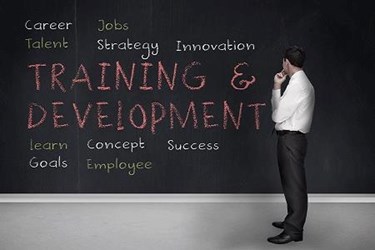Employee Training: The Best Investment Your Company Can Make

By Chet Neal, president, Sound Stage Inc.
Everyone knows more knowledgeable, engaged employees should translate into more success. So why don’t more companies invest in their people? I’ve asked myself that question for years.
Education and training are top priorities for Sound Stage, an audio and video integration specialist based in Winter Park, FL. We’ve doubled the number of employees in the last three years and increased sales at a double-digit percentage for the last decade. Is our growth a direct result of our investment in our employees? It might not be, but there’s been a lot of research to correlate happy employees equals better employees. For example:
- 74 percent of employees felt they don’t achieve their full potential at work due to lack of development opportunities, according to the Middlesex University’s Institute for Work Based Learning
- nearly one-third of newly hired employees leave the company before the end of the first year, which results in lower productivity, workforce stability, and organizational results according to PricewaterhouseCoopers
- only 32 percent of employees say they feel “engaged in their jobs,” according to Gallup, which further finds engaged employees “are involved in, enthusiastic about and committed to their work”
Education and training are critical for solution providers. Whether you’re an IT VAR, an AV specialist or an office technologies dealer, it’s imperative your employees know everything they can — and that they feel like they can develop their skills, move up within your organization, and help your business grow.
Our experience is education brings a lot of intrinsic value to the company and the rewards are far greater than the cost. It is vital associates know more about the most innovative technology on the market than customers or competitors do. But it’s also important to teach them how to use tools to be more productive and more efficient in their jobs as well.
With that in mind, Sound Stage recently embarked on our most ambitious education effort to date. The background: as our company grew, we noticed managing employees’ workflows became unwieldy with the systems we had in place. To remedy that, we developed a plan to have all employees undergo training on Tigerpaw Software, a professional services automation (PSA) platform. In many cases that meant taking people out of their normal roles for a week.
It was an expensive investment in both time and money, but it was important to our success and future growth that we become more efficient. And getting employees to buy into that increased efficiency was equally important.
Tigerpaw’s training initiative, Tigerpaw Academy, was a great resource to leverage and helped us get everyone to buy into the process. Once we got started, employees realized Tigerpaw tracked the training scores of not only our employees, but how everyone compared against other Tigerpaw partners. Their competitive juices started flowing, so we decided to take it to the next level.
We captained some employees who really went above and beyond to complete the entire course as champions to inspire the others. In the end, many employees earned “national rankings” and completed far more courses than we originally planned. To reward employees, we organized a Tacos & Tigerpaw event, giving them a chance to celebrate their accomplishments.
The employees’ excitement extended beyond scores as they recognized they were learning how to be more efficient at their job. We’re still in the adoption cycle, but we’re already seeing signs of a return on our investment in terms of more engaged employees and improved workflows.
The whole experience reminds me of a story about a conversation between two executives. The first one asks, “What happens if we invest in our employees and then they leave?” The second responds, “What happens if we don’t and they stay?”
Too many businesses take the approach of that first executive. I think it’s only a matter of time before those companies start to fall behind. I’d like to think we’d be a third executive in that scenario, one who asks “what happens if we do and they stay?”
The answer so far has been “success.”
